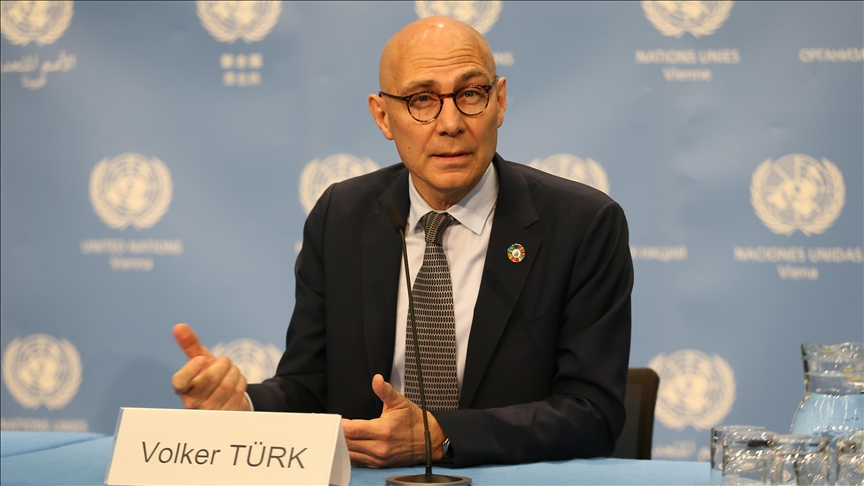Global Courant
MELEKHOVO, Russia — Imprisoned Russian opposition leader Alexei Navalny is set to stand trial Monday on fresh charges of extremism that could keep him behind bars for decades.
The trial began at a high-security penal colony in Melekhovo, 250 kilometers (150 miles) east of Moscow, where 47-year-old Navalny is serving a nine-year prison sentence for fraud and contempt of court – the charges he says are politically motivated.
Navalny, who denounced official corruption and organized large protests against the Kremlin, was arrested in January 2021 when he returned to Moscow after recovering in Germany from a nerve gas poisoning he blamed on the Kremlin.
Dressed in his prison robes, Navalny looked emaciated during the hearing, but spoke emphatically about the weakness of the state’s cause and made energetic gestures.
Navalny has said the new charges of extremism, which he dismissed as “absurd”, could keep him in prison for another 30 years. He said he was told by an investigator that he would also face a separate military trial on terrorism charges, which could potentially carry a life sentence.
Monday’s trial came amid a sweeping Russian crackdown on dissent amid the fighting in Ukraine, which Navalny has sharply criticized.
The Moscow court, which opened the hearing in Penal Colony No. 6, did not allow reporters into the courtroom and they followed the proceedings via video feed from a separate building. Navalny’s parents were also denied access to the court and followed the hearing from a distance.
Navalny and his lawyers urged the judge to hold a public trial, arguing that authorities are happy to withhold details of the proceedings to cover up the weakness of the case.
“The investigators, the prosecutors and the authorities in general don’t want the public to know about the trial,” Navalny said.
Prosecutor Nadezhda Tikhonova asked the judge to conduct the trial behind closed doors, citing security concerns.
The session’s feed to the media room was then interrupted, but it wasn’t immediately clear if this was because the judge decided to close the trial or if it was for some other reason.
The new charges relate to the activities of Navalny’s anti-corruption foundation and statements by its top associates. His allies said the charges would retroactively criminalize all activities of the Navalny foundation since its founding in 2011.
One of Navalny’s associates, Daniel Kholodny, was transferred from another prison to stand trial with him.
Navalny has spent months in a small one-person cell, known as a “punishment cell,” for alleged disciplinary violations, such as allegedly not buttoning his prison clothes properly, properly introducing himself to a guard, or washing his face at a specified time . time.
Navalny’s associates and supporters have accused prison authorities of not providing him with proper medical care and expressed concern for his health.
As Navalny’s trial began, the Attorney General’s Office declared the Bulgaria-based human rights group Agora an “undesirable” organization. It said the group poses a “threat to constitutional order and national security” by alleging human rights violations and providing legal assistance to members of the opposition movement.
Russian authorities have banned dozens of domestic and foreign non-governmental organizations on similar grounds.
In Berlin, the German government criticized Navalny’s trial and reiterated its call for his immediate release.
“In the case of opposition politician Alexei Navalny, Russian authorities continue to look for new excuses to extend his detention,” government spokesman Wolfgang Buechner told reporters.
“The German government continues to demand that the Russian authorities release Navalny without delay,” he added. “Navalny’s imprisonment is based on a politically motivated sentence, as the European Court of Human Rights concluded in 2017.”
Asked if Germany could assist Navalny or observe the trial, Foreign Ministry spokesman Christian Wagner said German officials were doing what they could “on the few channels we have” but acknowledged that it “very difficult at the moment” given the current state of relations with Russia.
___
Associated Press writer Frank Jordans in Berlin contributed.








